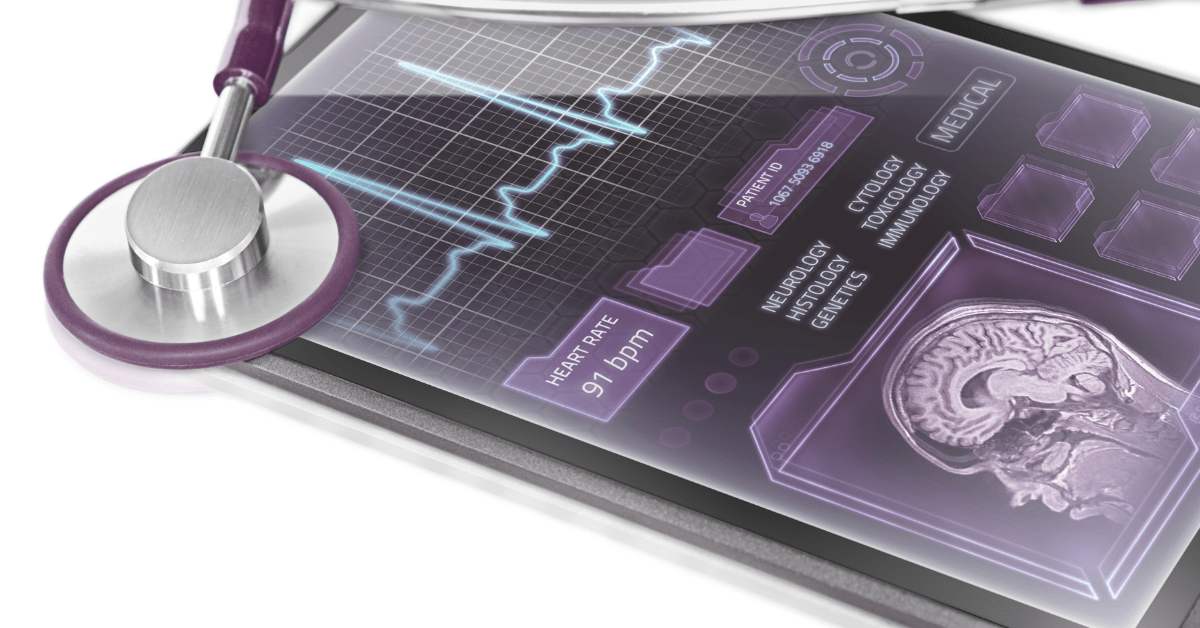Healthcare data doesn’t live in one place. From EHRs and labs to billing systems and external partners, every healthcare organization deals with a complex network of technologies. Getting all of these systems to “talk” to each other is essential — but it is also one of the most challenging parts of modern healthcare IT. That’s where interoperability consulting comes in.
Interoperability consulting focuses on helping healthcare organizations plan, implement, and maintain secure and reliable data exchange between disparate systems. The goal is simple but powerful: make sure your data flows smoothly across platforms, departments, and organizations — without disruptions, compliance risks, or bottlenecks.
Defining interoperability consulting
At its core, interoperability consulting is about enabling seamless and secure communication between healthcare applications. This could mean connecting an electronic health record (EHR) to a lab information system, building HL7 and FHIR interfaces, or redesigning workflows so that clinical data doesn’t get stuck in silos.
Typical consulting engagements include:
- Integration strategy and planning
- HL7 and FHIR interface design
- System architecture review
- Workflow analysis and mapping
- Compliance and documentation support
- Troubleshooting existing data exchange issues
- Training and knowledge transfer
While technical implementation is a major part of interoperability consulting, the real value lies in aligning data exchange with business and clinical goals. A consultant does not just code interfaces — they ensure the integration supports patient care, billing, reporting, and compliance.
Why your organization might need an interoperability consultant
You may already have technical staff or vendor support. So why bring in an external consultant? The answer is expertise, focus, and experience with complex scenarios that internal teams may not have the bandwidth or specialized knowledge to solve.
Common reasons to engage interoperability consulting include:
- You are implementing or replacing an EHR and need smooth connections to existing systems
- You must connect with a new lab, imaging provider, or external partner
- Your current integrations are breaking, generating errors, or failing compliance audits
- You are migrating from Mirth Connect to another integration engine such as BridgeLink
- You need expert help mapping HL7 or FHIR data to your organization’s workflows
- Your staff turnover has left knowledge gaps that are slowing down IT operations
In these situations, a consultant does not replace your IT team — they extend it. The consultant brings a fresh perspective, applies best practices learned from multiple projects, and accelerates delivery while helping avoid costly mistakes.
Real-world scenarios where interoperability consulting makes the difference
Consider a mid-sized hospital preparing to switch EHR vendors. The internal IT team has experience with the old system but limited exposure to HL7 v2 message mapping for the new one. An interoperability consultant can design the message interfaces, validate data flow, and provide documentation so the transition does not impact patient care.
Another example: a regional laboratory receives hundreds of orders daily from different physician offices. Some send HL7 ORU results, others rely on FHIR APIs, and a few still fax. A consultant can create a unified integration strategy — consolidating the connections, reducing manual entry, and ensuring accurate, timely lab reporting.
Or think about compliance: during an audit, your organization might be asked to demonstrate data security controls. Interoperability consultants can review your integration logs, document safeguards, and ensure your workflows meet HIPAA and other regulatory requirements.
The role of training in interoperability consulting
Integration projects are never “set it and forget it.” Tools evolve, staff come and go, and new partners join your network. That’s why training is a critical component of interoperability consulting. Without training, organizations risk losing the knowledge they need to support and extend integrations after the consultant leaves.
At Healthcare Integrations, training includes:
- Custom HL7 and FHIR workshops tailored to your systems
- Mirth and BridgeLink training for new and experienced teams
- One-on-one coaching for interface analysts
- Documentation and process handoff support
The objective is clear: we don’t just build solutions, we teach your team how to sustain and grow them. This knowledge transfer is what allows organizations to remain agile and independent long after the consulting engagement ends.
How interoperability consulting engagements are structured
Every organization is unique, so a consultant’s job is to adapt the engagement to your systems, workflows, and goals. At Healthcare Integrations, the process typically follows four stages:
- Discovery — We start by listening. What are your workflows? What systems need to connect? What are your challenges?
- Assessment — We evaluate your current architecture, identify risks, and map out integration priorities.
- Guidance — We recommend solutions, tools, and best practices tailored to your needs.
- Implementation and support — From go-live to long-term monitoring, we make sure integrations continue to deliver value.
This flexible approach ensures no “one-size-fits-all” — every engagement is customized to fit your environment.
When is the right time to engage an interoperability consultant?
The best time to bring in consulting support is before critical integrations fail or projects stall. Early involvement helps prevent costly downtime and rushed fixes. But even if issues are already happening, it is never too late to get expert help.
Signs it’s time to call in an interoperability consultant include:
- Upcoming go-live dates with multiple system dependencies
- Frequent integration errors disrupting workflows
- Staff struggling with HL7 or FHIR message troubleshooting
- Need for compliance documentation that internal staff cannot easily produce
- Expansion into new services, labs, or partner networks
Frequently asked questions about interoperability consulting
Is interoperability consulting only for large hospitals? No. Small clinics, physician practices, and regional labs benefit just as much. Any organization that exchanges healthcare data can face challenges with integration.
How long does an engagement usually last? It depends on scope. Some projects take a few weeks, while larger EHR replacements may require months of planning and support. Consultants scale their involvement based on your needs.
Is consulting more expensive than hiring internal staff?
Not necessarily. Consultants often reduce long-term costs by preventing delays, failed integrations, and compliance penalties. They also transfer knowledge, so your internal team becomes more effective.
What is the difference between Mirth Connect and BridgeLink?
Mirth Connect has been widely used, but recently shifted to a commercial model. BridgeLink provides a modern alternative with critical updates, improved performance, and continued support. Consultants can help plan and execute migrations between the two platforms.
Conclusion — strengthening healthcare through better integrations
Interoperability consulting is not just about technology. It is about ensuring that healthcare data moves efficiently, securely, and in ways that support clinicians, patients, and administrators. Whether you are replacing an EHR, connecting to new partners, or facing recurring integration errors, the right consultant can make the difference between chaos and clarity.
📅 Ready to discuss your project? Schedule a free consultation with Healthcare Integrations and let’s build an integration strategy that works for you.





